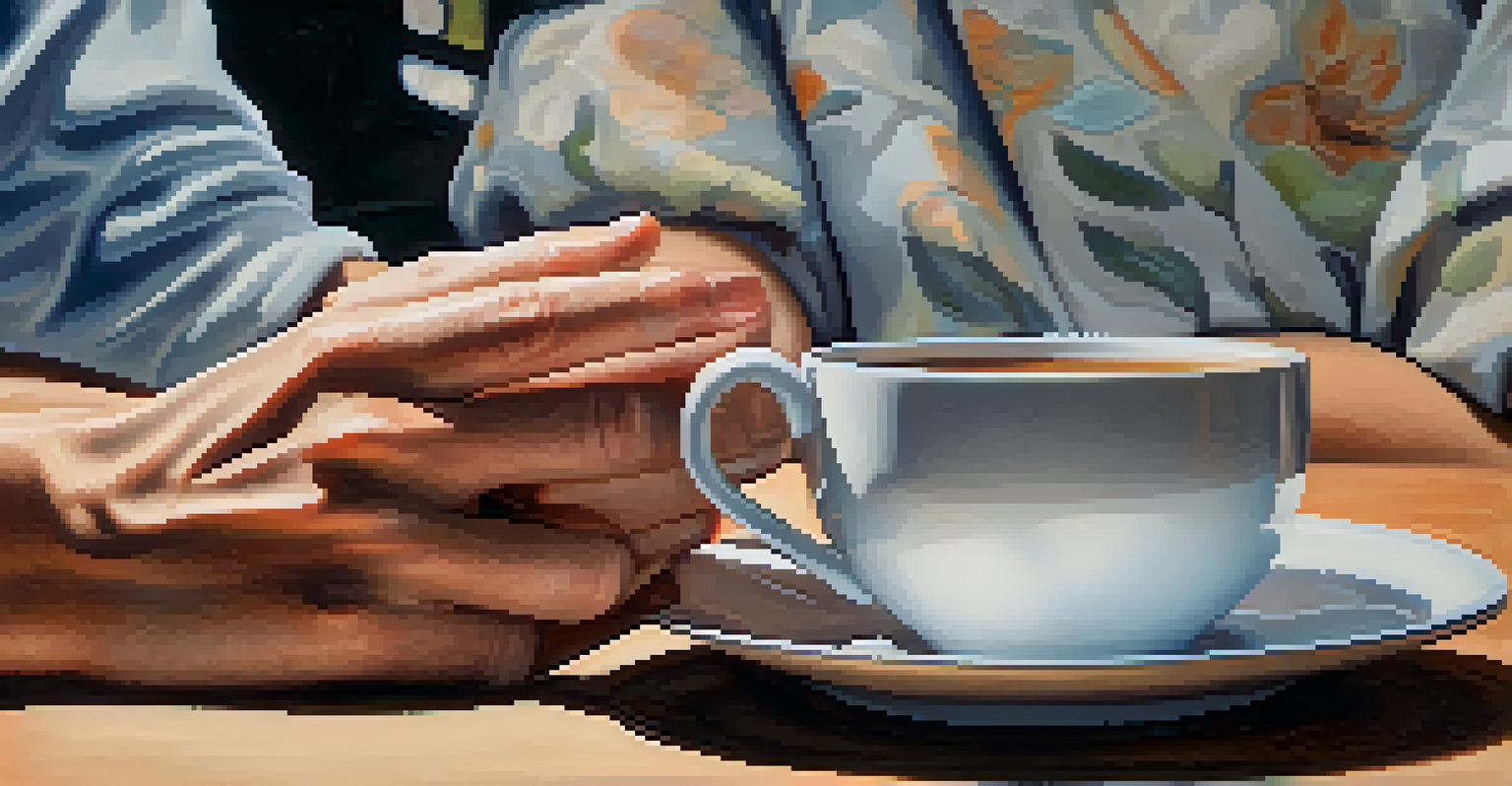Recognizing the Signs of Addiction in a Relationship

Understanding Addiction and Its Impact on Relationships
Addiction can take many forms, from substance abuse to compulsive behaviors like gambling or gaming. When it creeps into a relationship, it can distort dynamics and create barriers between partners. Recognizing how addiction manifests is crucial to addressing it effectively, as it often leads to emotional and physical distance.
Addiction is a family disease. One person may use, but the whole family suffers.
In many cases, the partner struggling with addiction may not even realize the extent of their problem. This denial can perpetuate harmful patterns and make it difficult for their loved ones to communicate their concerns. Understanding the nature of addiction helps partners approach the situation with empathy rather than frustration.
Addiction doesn't just affect the individual; it can also lead to feelings of helplessness, anger, and confusion in the partner. By acknowledging the signs, both individuals can work toward a healthier relationship and seek support together.
Common Behavioral Signs of Addiction
One of the most noticeable signs of addiction is a change in behavior. This might manifest as increased secrecy, withdrawal from social activities, or erratic mood swings. If your partner seems less engaged in the relationship or frequently cancels plans, it could be a red flag.

You might also notice changes in their priorities. Is your partner spending more time on activities related to their addiction than with you or other responsibilities? This shift can signal that their addiction is taking precedence over the relationship, which can be incredibly damaging.
Recognizing Addiction's Signs
Understanding the behavioral, physical, and emotional indicators of addiction is essential for partners to address the issue effectively.
Lastly, increased defensiveness can indicate that your partner is struggling. If they become irritated when you bring up concerns about their behavior, it may suggest a deeper issue at play. Approaching these conversations with care and understanding is vital to fostering open dialogue.
Physical Signs to Watch For
Physical changes can often accompany addiction, making them critical for partners to recognize. Look for signs like sudden weight loss or gain, poor hygiene, or a decline in overall health. These changes can serve as indicators that your partner may be battling an addiction.
The greatest danger of denial is that it prevents us from seeking help and healing.
Another common sign is the presence of withdrawal symptoms. If your partner becomes agitated, anxious, or shaky when they don’t have access to their substance of choice, it’s time to take a closer look. These physical manifestations can be alarming and should not be overlooked.
It's essential to remember that each person’s experience with addiction is unique. While physical signs can be alarming, they should be considered alongside other behavioral changes to get a clearer picture of the situation.
Emotional and Mental Health Indicators
Addiction often intertwines with mental health issues, leading to emotional instability. If your partner shows signs of depression, anxiety, or mood swings that seem out of character, it could point toward an underlying addiction. These emotional shifts can strain the relationship significantly.
In addition to mood changes, a loss of motivation or interest in previously enjoyed activities is another strong indicator. If your partner no longer finds joy in hobbies or socializing, it may be a sign that their addiction is overshadowing their life. This can create a cycle of withdrawal that further isolates them from you.
Denial Hinders Communication
Denial is a common barrier in addiction that complicates conversations about concerns, making empathetic dialogue crucial.
It's crucial to approach these signs with compassion. Mental health struggles can be deeply rooted, and understanding the connection between addiction and emotional well-being is key to helping your partner feel supported rather than judged.
The Role of Denial in Addiction
Denial is a common defense mechanism in addiction, making it challenging for partners to address the issue. Your loved one may insist that their behavior is under control, even when evidence suggests otherwise. This denial can create a frustrating barrier in your attempts to communicate.
Understanding denial can help you approach conversations more effectively. Instead of confronting your partner aggressively, try to express your concerns from a place of love and support. This can open the door to more productive discussions about their behavior and its impact on your relationship.
Recognizing denial is the first step toward breaking the cycle. By fostering an environment where your partner feels safe to acknowledge their struggles, you can work together to find solutions and seek the help they may need.
How to Approach Conversations About Addiction
Initiating a conversation about addiction can be daunting, but it's essential for healing. Choose a calm, private setting where your partner feels safe and respected. Begin by sharing your observations without accusations, focusing on how their behavior affects you rather than labeling them.
Using 'I' statements can help convey your feelings without putting your partner on the defensive. For example, saying, 'I feel worried when you don't come home' can be more effective than 'You never come home on time.' This approach encourages open dialogue and reduces the chances of them shutting down.
Seeking Help Strengthens Bonds
Encouraging professional help and attending support groups together can foster recovery and enhance the relationship.
Be prepared for a range of reactions. Your partner may feel defensive, angry, or confused. Providing ongoing support and expressing your willingness to help can create a foundation for productive discussions and potential recovery.
Seeking Professional Help Together
If you suspect that your partner is struggling with addiction, seeking professional help is a vital step. Encourage them to speak with a therapist or counselor who specializes in addiction. These professionals can offer support tailored to their needs and help them navigate their journey toward recovery.
Consider attending support groups together, such as Al-Anon or Nar-Anon, which are designed for loved ones of individuals with addiction. Sharing experiences with others in similar situations can provide valuable insights and emotional relief, creating a sense of community.

Healing from addiction is often a long road, and it's important to approach it as a team. Supporting each other through this process not only addresses the addiction but also strengthens the bond in your relationship.